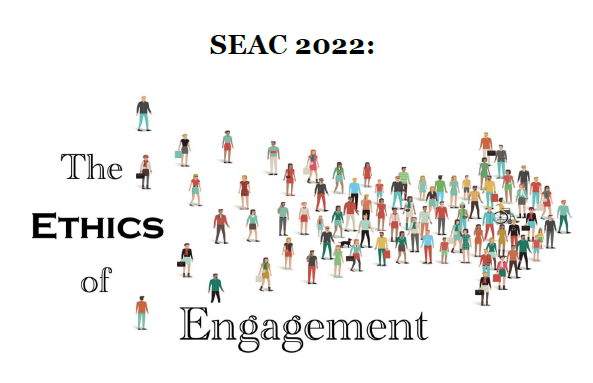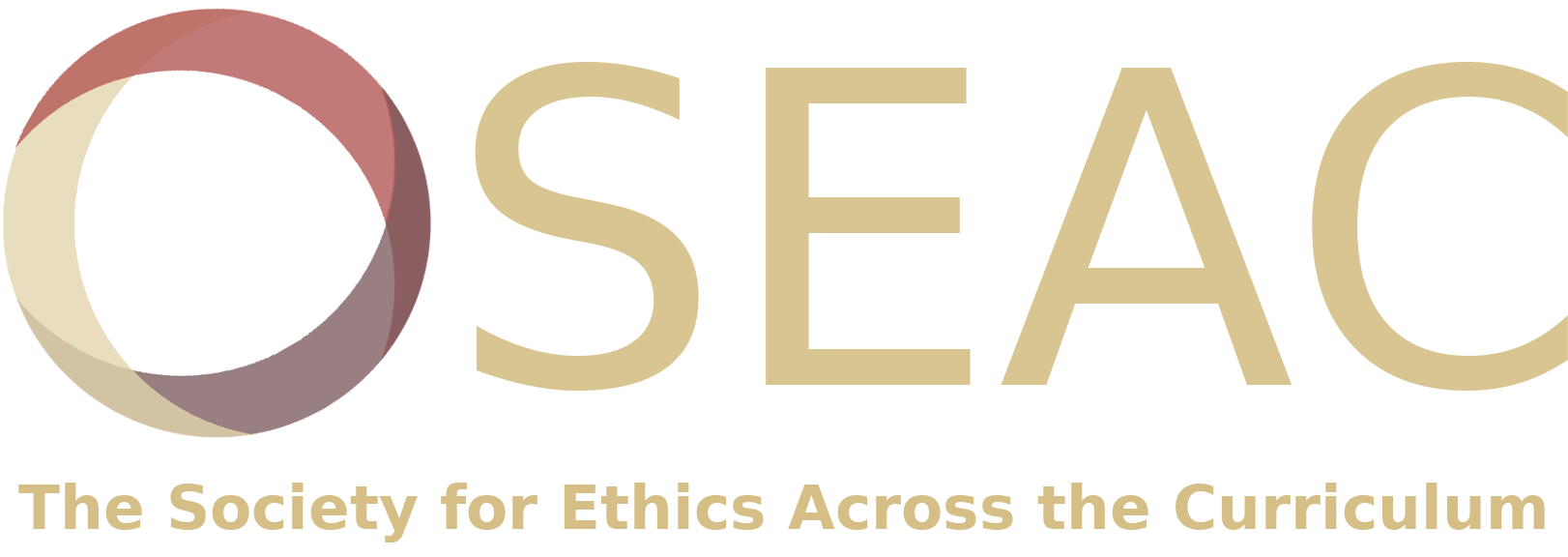
Concurrent Session 2B
Location
Ford Ballroom B, The Inn at Ole Miss
Start Date
6-10-2022 1:15 PM
End Date
6-10-2022 2:25 PM
Description
- Adding Engagement to “Ethics in a Digital Age” / Glen Miller, Texas A&M University
This paper describes the outcome of a number of enhancements added to PHIL 282 Ethics in a Digital Age that were funded by an internal Texas A&M University Presidential Transformational Teaching Grant. The interdisciplinary course explores some of the ethical and social implications of digital technologies, including questions of privacy and surveillance, artificial intelligence, digital citizenship, and geopolitical relations. The fundamental aim of the grant proposal was to develop the infrastructure to give my students the opportunity to contribute (even if on a small scale) to the research mission of the university, to produce works that which, in their dissemination, enrich public discourse and are widely available to as many people as appropriate, including (but not at all limited to) students who take the course in the future. I describe the improvements made to the assignments and course schedule; the development of an online module that is a stepwise guide to doing efficient research, writing papers, and developing presentations; my collaboration with the university library to create an open access faculty-curated collection of student work in text, audio, and video forms; and some practical lessons learned over the past two years. - Are Siri and Alexa good for us? / Mark Doorley, Villanova University
In this session I aim to present reflections on the increasingly significant role of artificial intelligence in shaping the contours of civic life and engagement. Many have written about the impact of the algorithms of social media in creating “ideological bubbles” around groups of people, impacting the opportunity to engage content and people who are essentially “othered” by the work of the algorithms. What we’ll examine is the impact that AI, whether in our smart speakers, phones and computers, is having and might have on our relational skill development. Since the AI learns from what it receives from us, and then offers us more of what is similar to what it has received, is the impact similar to that of social media algorithms, or is something different going on? I will highlight the work of Chirag Shah and Emily M. Bender in their March 2022 paper entitled “Situating Search” in which they argue that the language models in use for search functions create an expectation in the human users that the AI-based interface, e.g. Siri, understands the response to the users search query. What are the possible consequences of this move in artificial intelligence on the cognitive and affective skills that make deliberation and related activities, possible and effective? In the end, it is worth wondering about whether or not the increasing ubiquity of artificial intelligence in human affairs is contributing to human well being.
Session Chair: Wade Robison, Rochester Institute of Technology
Relational Format
conference proceeding
Recommended Citation
Miller, Glen; Doorley, Mark; and Robison, Wade, "Concurrent Session 2B" (2022). Society for Ethics Across the Curriculum Conference. 9.
https://egrove.olemiss.edu/seac/2022/schedule/9
COinS
Oct 6th, 1:15 PM
Oct 6th, 2:25 PM
Concurrent Session 2B
Ford Ballroom B, The Inn at Ole Miss
- Adding Engagement to “Ethics in a Digital Age” / Glen Miller, Texas A&M University
This paper describes the outcome of a number of enhancements added to PHIL 282 Ethics in a Digital Age that were funded by an internal Texas A&M University Presidential Transformational Teaching Grant. The interdisciplinary course explores some of the ethical and social implications of digital technologies, including questions of privacy and surveillance, artificial intelligence, digital citizenship, and geopolitical relations. The fundamental aim of the grant proposal was to develop the infrastructure to give my students the opportunity to contribute (even if on a small scale) to the research mission of the university, to produce works that which, in their dissemination, enrich public discourse and are widely available to as many people as appropriate, including (but not at all limited to) students who take the course in the future. I describe the improvements made to the assignments and course schedule; the development of an online module that is a stepwise guide to doing efficient research, writing papers, and developing presentations; my collaboration with the university library to create an open access faculty-curated collection of student work in text, audio, and video forms; and some practical lessons learned over the past two years. - Are Siri and Alexa good for us? / Mark Doorley, Villanova University
In this session I aim to present reflections on the increasingly significant role of artificial intelligence in shaping the contours of civic life and engagement. Many have written about the impact of the algorithms of social media in creating “ideological bubbles” around groups of people, impacting the opportunity to engage content and people who are essentially “othered” by the work of the algorithms. What we’ll examine is the impact that AI, whether in our smart speakers, phones and computers, is having and might have on our relational skill development. Since the AI learns from what it receives from us, and then offers us more of what is similar to what it has received, is the impact similar to that of social media algorithms, or is something different going on? I will highlight the work of Chirag Shah and Emily M. Bender in their March 2022 paper entitled “Situating Search” in which they argue that the language models in use for search functions create an expectation in the human users that the AI-based interface, e.g. Siri, understands the response to the users search query. What are the possible consequences of this move in artificial intelligence on the cognitive and affective skills that make deliberation and related activities, possible and effective? In the end, it is worth wondering about whether or not the increasing ubiquity of artificial intelligence in human affairs is contributing to human well being.
Session Chair: Wade Robison, Rochester Institute of Technology


